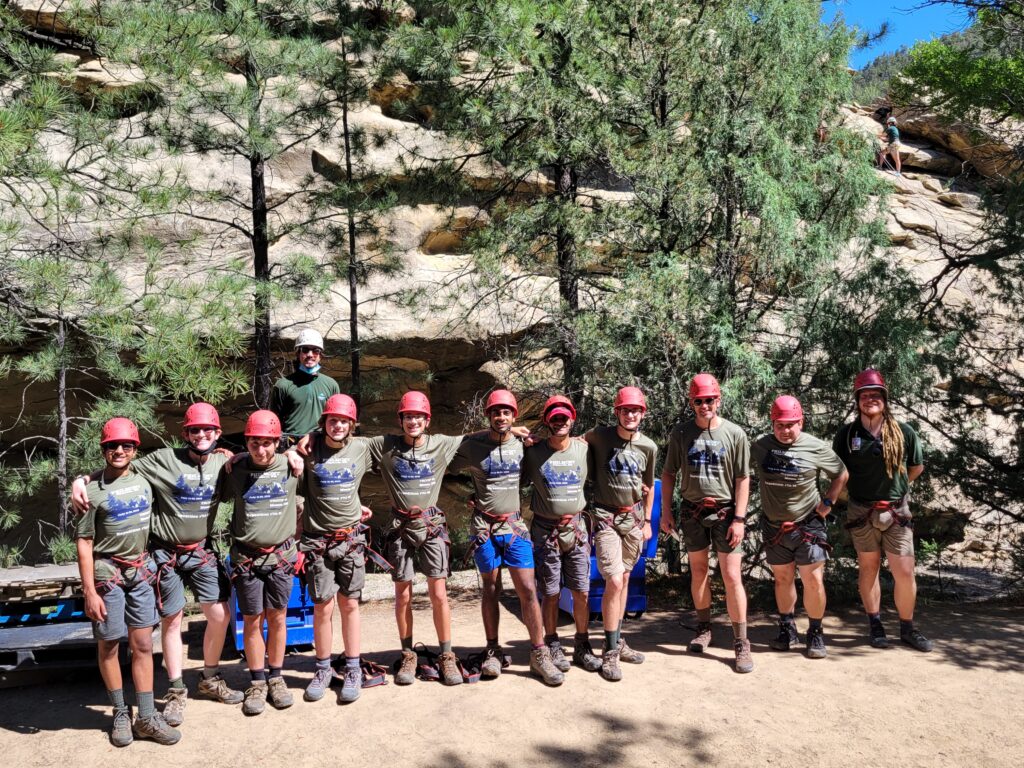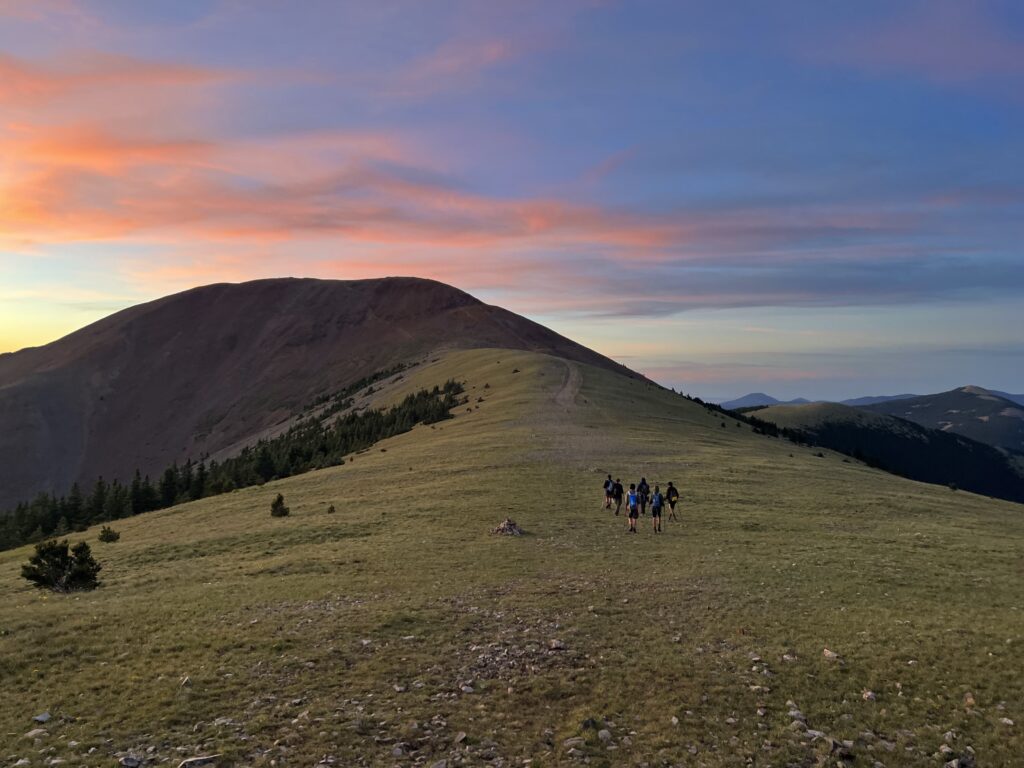Mason scouts trek through wilderness after year of training

Divy Bose | The Chronicle
Living off of freeze-dried meat and energy bars, a boy scout troop managed to climb up a 12,441-foot mountain.
In the summer of 2022, Mason Boy Scouts Troop 43 lived in the wilderness in Philmont, New Mexico on top of Mount Baldy. The troop flew to Denver and then drove to New Mexico, giving up cell service, home-cooked meals and purified water for the next several days.
The scouts trained for this trip for a year, hiking as much as one hundred miles by going on “shakedown hikes,” which are smaller but challenging courses. The scouts took on at least one course and trekked miles through rain, heat or snow for a year to build up the endurance that was needed for Philmont.
Due to seasonal changes, training could be unpredictable. Freshman Wyatt Heekins said that his hardest hike was trekking through knee-high snow during the winter.
“We all thought the snow was too much to walk through and almost gave up,” Heekins said. “Everyone was saying to turn back around, but we ended up walking another forty minutes through it and stood our ground.”
Even with the extensive training, spending numerous days in the wilderness did not initially seem appealing to senior Pranav Purma. Building up the strength it took to hike between four and fifteen miles a day, up and downhill, was something Purma saw as a tough but rewarding experience. “Honestly, I was not even planning on going,” Purma said. “But once I saw spots open up for the trip, [I decided] that seeing those beautiful views from the top of the mountain would be worth it.”
At the start of the trip, the troop woke up at three in the morning and hiked up the mountain for three to four hours, making it just in time to see the sunrise. However, seeing the scenery meant being on a higher elevation, which can lead to many complications and risks. Purma said that the higher they trekked up the hill, the harder it became to breathe.
“I felt a tickle in my throat and completely lost my voice nine days into the trip,” Purma said. “I could not talk the rest of the trip because of the severe dehydration I went through, as well as elevation sickness.”
Since the scouts had no cell phone signal or charging outlets in sight, they reverted back to the old ways of using a map and compass for directions. Freshman Nicholas Pederson said not being able to use technology for most of the trip was difficult to adapt to.
“We could only communicate with our parents once or twice,” Pederson said. “We only had cell service in certain areas throughout the trip and were forced to cut ties with technology.”
The scouts had to carry a propane gas stove during the trip, making it even harder to hike along the trails. Purma said that bringing forty pounds of cooking equipment and dishes was extremely difficult but essential.
“Having that much weight on me while walking five miles was tough,” Purma said. “I did not think it was that bad until I felt free after I took all the equipment off of me and took a much-needed break.”
Prepackaged foods ended up being their only food source. The food was freeze-dried and bland, such as the chicken dishes or mac and cheese. Even with the stove to cook the meals in, Pederson said the food was hard to swallow.
“The food we carried resembles a lot of space food,” Pederson said. “It’s not good unless you are starving, but it was our only option besides energy bars or snacks.”
The scouts had to carry all of their food, supplies and clothing in one bag, making it difficult to decide what clothes were essential.
Heekins said the weather on top of Mount Baldy transitions from stifling humidity to freezing temperatures from day to night, so they wore a t-shirt and shorts during the day, but then switched to wearing multiple layers of clothing and puffer coats at night.
“We would sweat during the day and shiver at night since the weather change was so dramatic on top of the mountain,” Heekins said.
Before the scouts could go to sleep at night, they would tie all of their bags onto a tree using a thick rope to prevent bears from getting into their things. Purma said that seeing a bear during the trip was alarming, due to safety concerns.
“We saw a bear about a hallway’s length away from us,”’ Purma said. “Luckily, all of our bags were out of sight and protocols were followed, but it still initially shocked us.”
Having bears around meant that scouts were required to not have any fragrances foreign to the wilderness — meaning no deodorant. Heekins said that they had to choose between staying alive or getting eaten alive from maintaining hygiene.

“We couldn’t use deodorant at all since we didn’t have a way to wash it off before we go to bed,” Heekins said. “We all had to just flat out smell and suck it up.”
Hearing other scouts’ amazing experiences during this trip was what motivated Purma to take on the challenge himself. He said that experiencing a different lifestyle was intimidating, but it made him want to continue similar opportunities.
“All of the miles walked and hard core training we went through was worth it,” Purma said. “This experience has made me want to pursue more adventures in the wilderness and take it to the next level.”
Photos contributed by Pranav Purma
